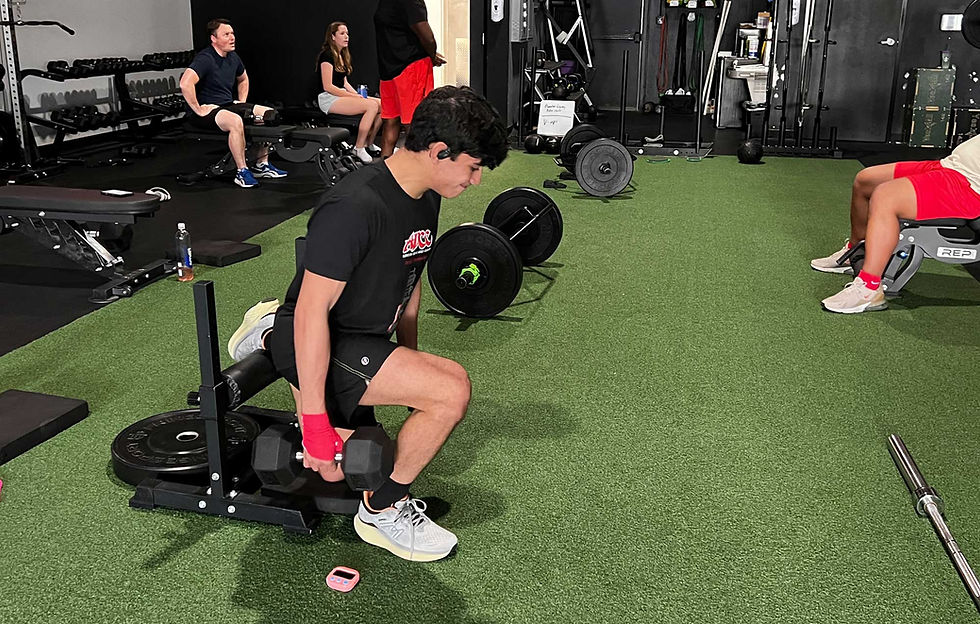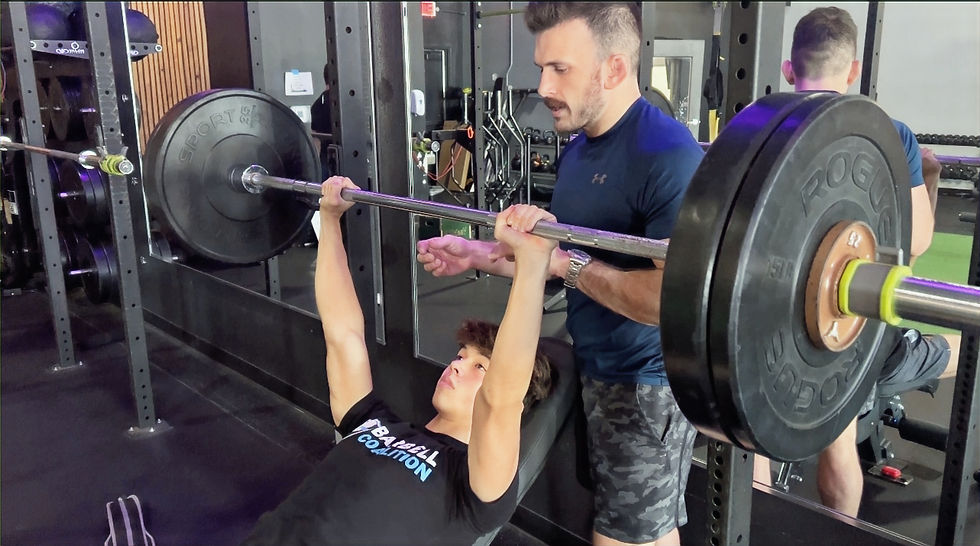3 Signs of Overtraining for Youth Athletes - Cedar Park Athlete Training
- Ben Lustig
- Oct 2, 2025
- 2 min read

As parents, you want your athlete to work hard, stay disciplined, and give their best effort in sports.
But sometimes, there’s a fine line between working hard and overworking.
When training loads get too high without enough recovery, young athletes can quickly fall into overtraining, which doesn’t just hurt their performance—it increases the risk of injury and burnout.
When training our youth athletes here at Barbell Coalition in Cedar Park, there are certain warning signs we look for and constantly educate parents on.
Here are 3 signs to watch for:
1. Constant Fatigue (Even After Rest)
If your athlete is always tired—even after a full night of sleep or a lighter practice—it may be more than just “normal tiredness.” Overtraining drains the body’s energy systems, leaving them sluggish in school, practice, and games.
2. Declining Performance Despite Hard Work
One of the biggest red flags: your athlete is putting in the effort but their performance keeps dropping.
They might feel slower, weaker, or less coordinated, even though they’re training more. Overtraining prevents the body from recovering enough to make progress.
3. Mood Changes and Lack of Motivation
When an athlete who used to love their sport suddenly dreads practice, seems irritable, or loses motivation, it could be mental burnout from too much physical stress.
The brain and body are connected—when recovery is lacking, mood and focus take a hit.
What Cedar Park Parents Can Do to Help Their Youth Athletes Train Properly
Encourage at least one full rest day each week.
Prioritize sleep and nutrition—two of the most underrated recovery tools.
Watch for signs that more training isn’t leading to more progress. Sometimes, scaling back allows for a breakthrough.
Consider structured strength and conditioning programs designed to build performance safely, without pushing kids past their limits.
Your athlete’s long-term development depends on finding the right balance between training and recovery.
By catching these signs early, you can help them avoid injuries and keep their passion for sports strong.




Comments